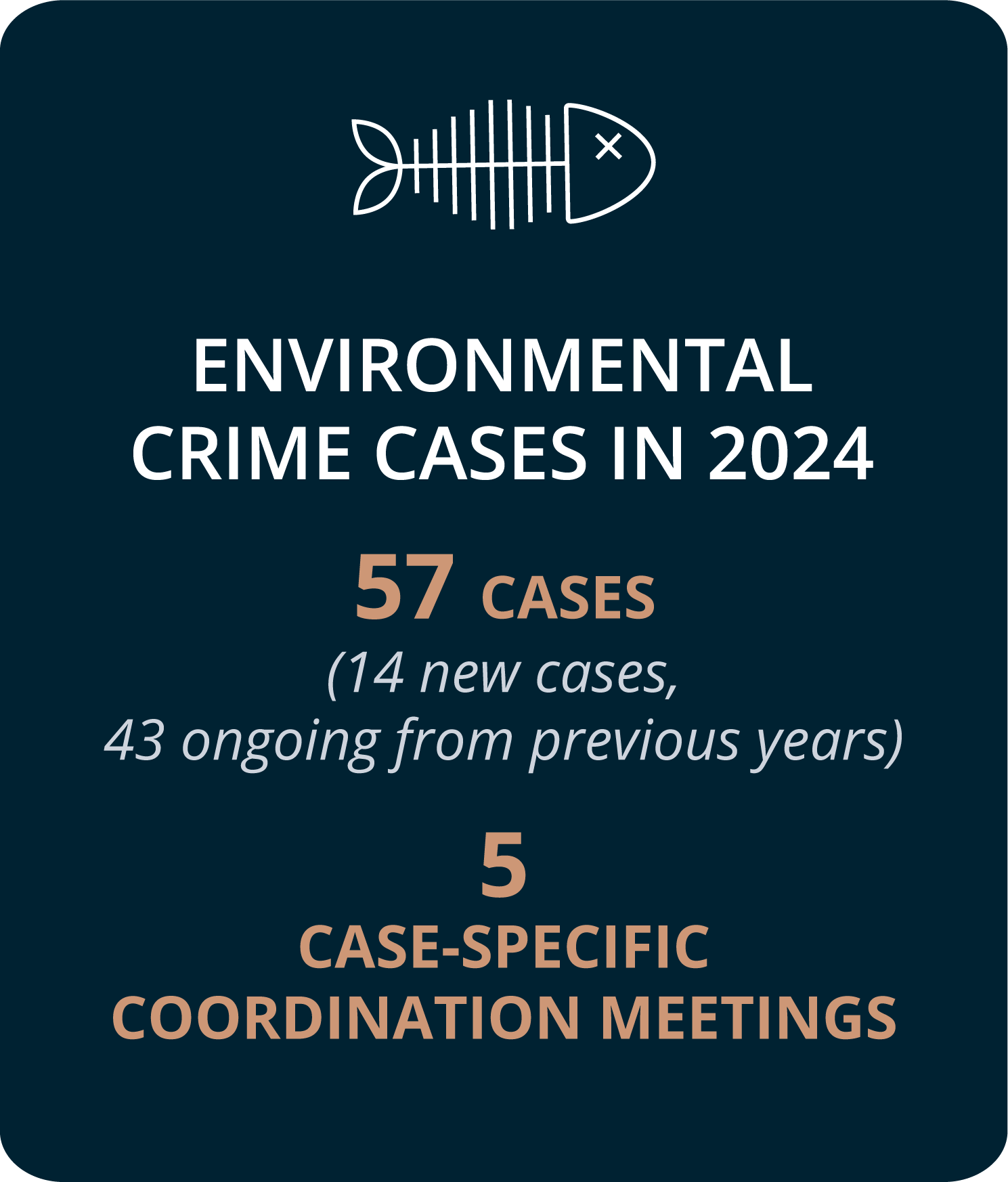Environmental crime endangers entire ecosystems while posing a serious threat to human health. It is one of the most profitable forms of illegal activity in the world. Since 2016, environmental crime has been the fourth-largest criminal activity globally[1]. Environmental crimes are often organised crimes with a cross-border dimension. The number of environmental crime investigations and prosecutions at the nation¬al and European levels remains low compared to other crime areas.
Eurojust’s operational support to environmental crime cases

In 2024, Eurojust handled 57 environmental crime cases, which is almost 20% less than in 2023. Environmental crime was the second least frequent type of crime addressed by Eurojust in 2024.
Waste crime and wildlife crime remained the most prominent types of environmental crime dealt with by the Agency in 2024.
Slovenia, followed by Italy, was the country that initiated the most environmental crime cases at Eurojust in 2024. Italy was also the country that was most frequently requested to participate in cross-border environmental cases handled by the Agency.
The number of environmental cases referred to Eurojust has been consistently low over the past five years. There are a number of reasons for this. One of the main challenges is the complexity of investigating environmental crime, which requires specialised legal, technical and scientific knowledge, and a multitude of actors responsible for monitoring compliance, conducting controls, detecting offences and gathering evidence. While the exchange of information and coordination at the national level is already difficult, it becomes even more challenging at the international level. The lack of specialised prosecutors in many EU Member States complicates the situation.
Another challenge is the variation in investigative approaches to environmental offences across jurisdictions, depending on whether administrative or criminal law is applied. Moreover, a lack of recognition of environmental crime as organised crime hampers the initiation of cross-border investigations. There are also differences in legislative approaches, which may create difficulties in cross-border judicial cooperation, such as issues of dual criminality. At the same time, criminal activities that damage the environment are often prosecuted as other crimes, such as fraud, tax evasion, money laundering or corruption. All these challenges result in a low number of environmental crime cases being investigated and subsequently referred to Eurojust.
Strategic developments impacting Eurojust’s environmental crime casework
The EU’s new Environmental Crime Directive entered into force in May 2024. The Directive contains important provisions to improve cross-border cooperation in the investigation and prosecution of environmental crime. EU Member States must transpose the Directive into national law by May 2026. It is expected that this legislative development will mitigate the judicial challenges faced in addressing environmental crime and lead to more environmental cases being referred to Eurojust.
Furthermore, the Council conclusions on combating cross-border environmental crime, published in October 2024, recognise that Eurojust has a crucial role to play in combating environmental crime. Member States are encouraged to make full use of the Agency’s specialised judicial tools, including JITs, coordination meetings and coordination centres, to successfully tackle environmental crime cases.

